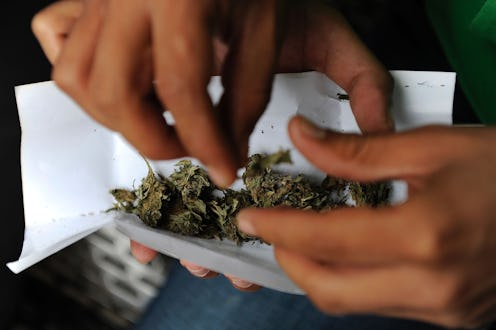Whether you smoke weed recreationally, or use medical marijuana for, well, medical reasons, you probably have your eyes riveted on which states will be legalizing the drug during this election. Medical weed was already legal in 25 states, and so far is officially legal in four more. Arkansas, Florida, Montana, and North Dakota all passed their respective ballot measures to make marijuana legal for medicinal purposes.
Medical marijuana was on the ballot in Montana, Florida, and North Dakota, according to health editor Jen Christensen on CNN.com. "It [is also] on the ballot in Arkansas with two initiatives, but the results won't count for one of them, after the state Supreme Court struck the issue in October, due to invalid signatures," Christensen wrote.
This is great news for those who use medical marijuana to ease their pain. "It could be from headaches, a disease like cancer, or a long-term condition, like glaucoma or nerve pain," noted health writer Anne Harding on WebMD.com. Weed is also prescribed to those struggling with muscle spasms, poor appetite, nausea, Crohn's disease, and seizure disorders — among other things. In the states where medical marijuana is legalized, doctor-approved patients can receive a medical marijuana card that allows them to hit up their local dispensary for some relief. Pretty cool, right?
As for recreational weed, it was already legal in the District of Columbia, as well as Alaska, Oregon, Colorado, and Washington state, according to Christensen. It was on the ballot this election day in California, Massachusetts, Maine, Arizona, and Nevada.
The legalization of recreational weed has passed in California, Nevada, and Massachusetts, while Arizona rejected its similar ballot measure, and Maine's results remain unclear.
Of course, regardless of what's legal in these states, weed remains illegal under federal law. But that very well may change soon, too. Recent polls have shown national support for the legalization of marijuana in the past few years, according to Matt Ferner and Nick Wing on HuffingtonPost.com. This support may change laws in the coming years. But, as for today, making it legal in a few more states is a pretty good place to start.
